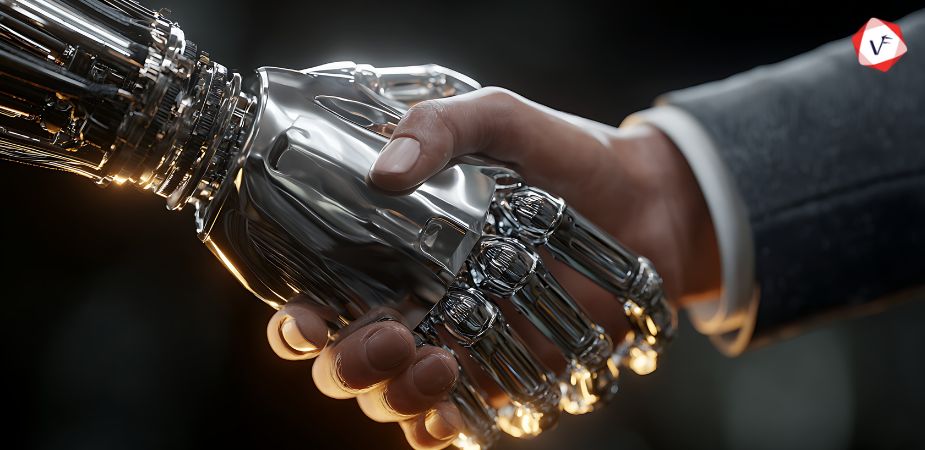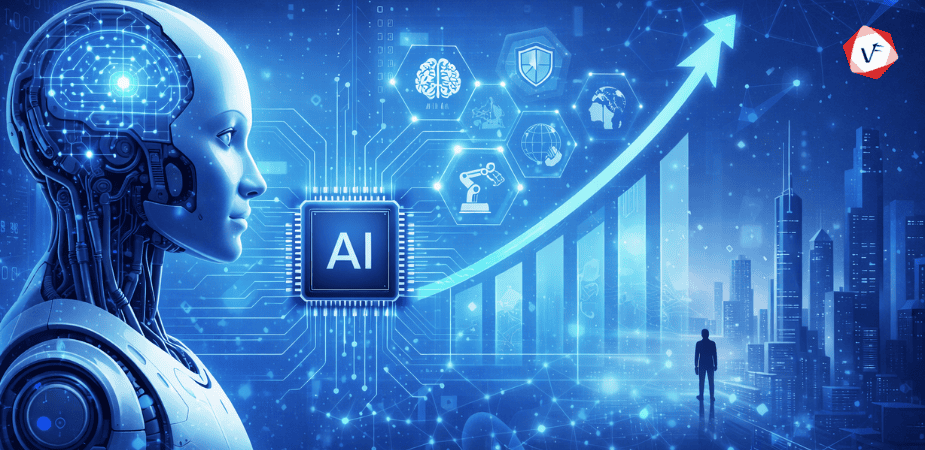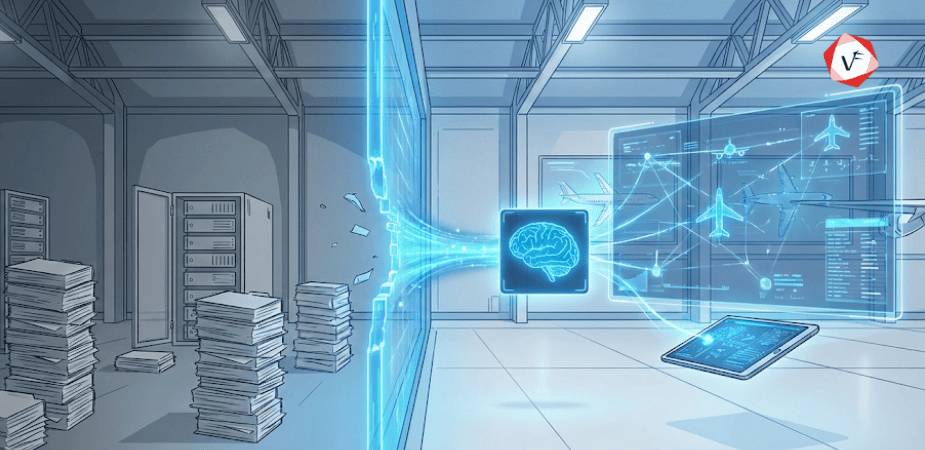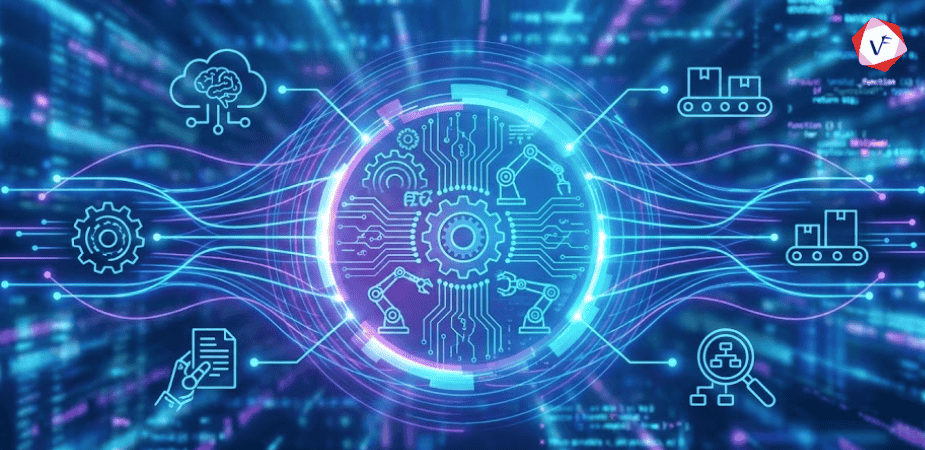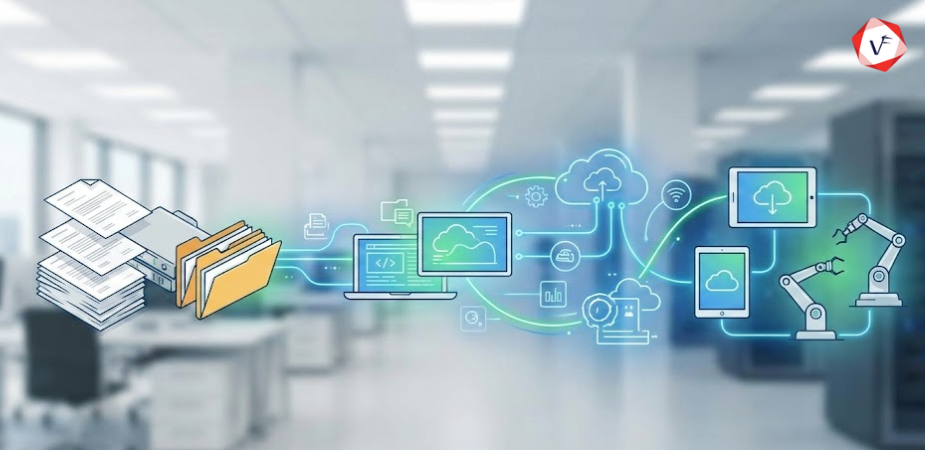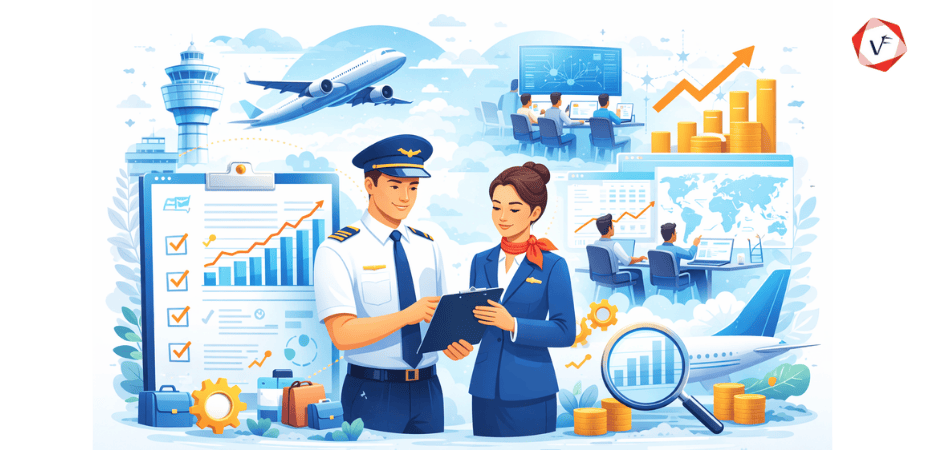Join us as we explore how AI is changing the way employees work, collaborate, and thrive in today’s workplaces. We’ll share practical tips and best practices for using AI to create workplaces that are engaging, inclusive, and empowering, where employees can truly flourish.
1. AI in Healthcare: Transforming Patient Care
AI’s impact on healthcare is profound, with applications ranging from diagnosis and treatment to administrative tasks and patient care. Machine learning algorithms can analyze vast amounts of medical data, including patient records, imaging scans, and genomic information, to identify patterns and make predictions.
This capability enables early disease detection, personalized treatment plans, and improved clinical outcomes. Healthcare providers can now leverage AI to detect diseases like cancer, cardiovascular conditions, and neurological disorders at stages where intervention is most effective.
Additionally, AI-powered robots and virtual assistants are streamlining administrative tasks, managing schedules, and enhancing communication between healthcare providers and patients. These innovations not only improve efficiency and accuracy but also have the potential to save lives and reduce healthcare costs significantly.
Key Takeaway: AI in healthcare improves diagnostic accuracy by up to 87%, reduces administrative burdens, and enables personalized treatment plans that can save both lives and costs.
2. AI in Finance: Driving Innovation & Security
In the finance industry, AI is driving innovation and disruption across multiple fronts. AI-powered algorithms analyze market trends, economic indicators, and consumer behavior to inform investment decisions, optimize portfolio management, and mitigate risks.
These algorithms can process vast amounts of data at lightning speed, identifying opportunities and anomalies that human analysts may overlook. The ability to analyze millions of data points in real-time gives financial institutions a competitive edge in volatile markets.
Moreover, AI-driven chatbots and virtual assistants are transforming customer service, providing personalized recommendations, and facilitating seamless transactions. Modern banking customers expect instant, accurate responses to their queries, and AI delivers this 24/7.
Additionally, AI-powered fraud detection systems analyze transaction data to detect suspicious patterns and prevent fraudulent activities, enhancing security and trust in financial transactions. These systems can identify potential fraud in milliseconds, protecting both institutions and consumers.
Key Takeaway: AI in finance processes data 1000x faster than humans, reduces fraud by 60%, and provides personalized customer service around the clock.
3. AI in Manufacturing: Automation Revolution
AI is revolutionizing the manufacturing sector by enabling advancements in automation, predictive maintenance, and quality control. Robotics and AI-powered machines are optimizing production processes, increasing productivity, and reducing labor costs.
These machines can perform repetitive tasks with precision and consistency, freeing up human workers to focus on more complex and value-added activities. The synergy between human creativity and AI efficiency creates unprecedented productivity gains.
Predictive maintenance systems leverage AI to monitor equipment performance in real time, predicting potential failures and scheduling maintenance proactively to minimize downtime. This approach can reduce unplanned downtime by up to 50% and extend equipment lifespan significantly.
Furthermore, AI-driven quality control systems inspect products with unparalleled accuracy, ensuring adherence to strict quality standards and minimizing defects. These advancements not only improve operational efficiency but also enhance product quality and reliability.
Key Takeaway: Manufacturing AI reduces production costs by 20-30%, decreases downtime by 50%, and improves product quality through precision inspection systems.
4. AI in Retail: Personalizing Customer Experience
In the retail sector, AI is transforming the customer experience, supply chain management, and marketing strategies. AI-powered recommendation engines analyze customer data, including purchase history, browsing behavior, and demographic information, to deliver personalized product recommendations.
These recommendations drive sales, increase customer satisfaction, and foster brand loyalty. Studies show that personalized recommendations can increase conversion rates by up to 300% and significantly boost average order values.
AI-driven supply chain optimization algorithms optimize inventory management, forecasting demand, and logistics operations, reducing costs and improving efficiency. Retailers can now predict demand patterns with remarkable accuracy, minimizing overstock and stockout situations.
Moreover, AI-powered chatbots and virtual assistants provide personalized customer support, answer inquiries, and facilitate seamless transactions, enhancing the overall shopping experience. These innovations enable retailers to stay competitive in a rapidly evolving marketplace and meet the evolving needs and expectations of consumers.
Key Takeaway: Retail AI increases conversion rates by up to 300%, reduces inventory costs by 25%, and provides personalized shopping experiences that boost customer loyalty.
5. AI in Transportation: The Future of Mobility
Artificial intelligence (AI) is revolutionizing the transportation sector by encouraging advancements in self-driving cars, route optimization, and traffic control systems. Self-driving cars equipped with AI algorithms use sensors, cameras, and GPS technology to navigate roads safely and efficiently, promising to revolutionize personal and commercial transportation.
These vehicles have the potential to reduce traffic accidents by 90%, alleviate congestion, and increase mobility for individuals with disabilities or limited mobility. The safety implications alone could save tens of thousands of lives annually.
AI-powered route optimization software analyzes traffic patterns, weather conditions, and other variables to optimize delivery routes, reduce fuel consumption, and minimize transportation costs. Logistics companies report fuel savings of 10-15% through AI-driven route planning.
Additionally, AI-driven traffic management systems monitor and control traffic flow in urban areas, reducing congestion, improving safety, and enhancing overall mobility. These advancements have the potential to transform how people and goods are transported, making transportation more efficient, sustainable, and accessible.
Key Takeaway: Transportation AI could reduce accidents by 90%, save 10-15% on fuel costs, and revolutionize urban mobility through intelligent traffic management.
The Future of AI: What’s Next?
As we look to the future, the trajectory of AI innovation is poised to continue its upward ascent, reshaping industries and revolutionizing the way we live and work. Here are some key trends and developments that are expected to shape the future of AI:
Advancements in Deep Learning
Deep learning, a subset of machine learning inspired by the structure and function of the human brain, is expected to drive significant advancements in AI. As researchers delve deeper into neural networks and develop more sophisticated algorithms, we can anticipate breakthroughs in areas such as natural language processing, image recognition, and autonomous systems.
AI-Powered Healthcare Evolution
In the healthcare sector, AI is poised to play an increasingly prominent role in disease diagnosis, drug discovery, and personalized medicine. As AI algorithms become more adept at analyzing medical data, including genetic information and patient records, we can expect to see improved diagnostic accuracy, more effective treatments, and better patient outcomes.
Ethical and Responsible AI
As AI technologies become more pervasive, there is growing concern about the ethical and societal implications of AI. In the future, we can expect to see increased emphasis on ethical AI development, including transparency, fairness, and accountability. Researchers and policymakers will need to collaborate to establish guidelines and regulations that ensure AI is deployed responsibly and ethically.
AI in Education
AI has the potential to transform the education sector by personalizing learning experiences, automating administrative tasks, and improving educational outcomes. In the future, we can anticipate the widespread adoption of AI-powered tutoring systems, adaptive learning platforms, and virtual classrooms that cater to individual student needs and preferences.
AI-Augmented Creativity
While AI has traditionally been associated with tasks that require analytical reasoning and problem-solving, there is growing interest in exploring its potential for augmenting human creativity. In the future, we can expect to see AI-powered tools and platforms that assist artists, writers, musicians, and designers in generating innovative ideas and pushing the boundaries of creative expression.
Final Thoughts & Key Takeaways
Artificial Intelligence is no longer confined to the realm of science fiction; it is a powerful force driving real-world transformation across industries. From healthcare to finance, manufacturing, retail, and transportation, AI is revolutionizing processes, enhancing efficiency, and improving outcomes.
As AI continues to evolve and mature, its impact on industries will only grow, unlocking new possibilities and opportunities for innovation. By embracing AI-powered technologies, organizations can stay ahead of the curve, drive growth, and deliver enhanced value to customers and stakeholders.
The future promises to be an exciting era of AI-driven innovation, where human ingenuity and technological advancement converge to create a brighter, more prosperous world. Organizations that invest in AI today will be the leaders of tomorrow, setting new standards for efficiency, innovation, and customer satisfaction.
Summary: AI is transforming industries through measurable improvements in efficiency, cost reduction, and customer satisfaction. The organizations that embrace AI strategically will lead their industries into the future.
